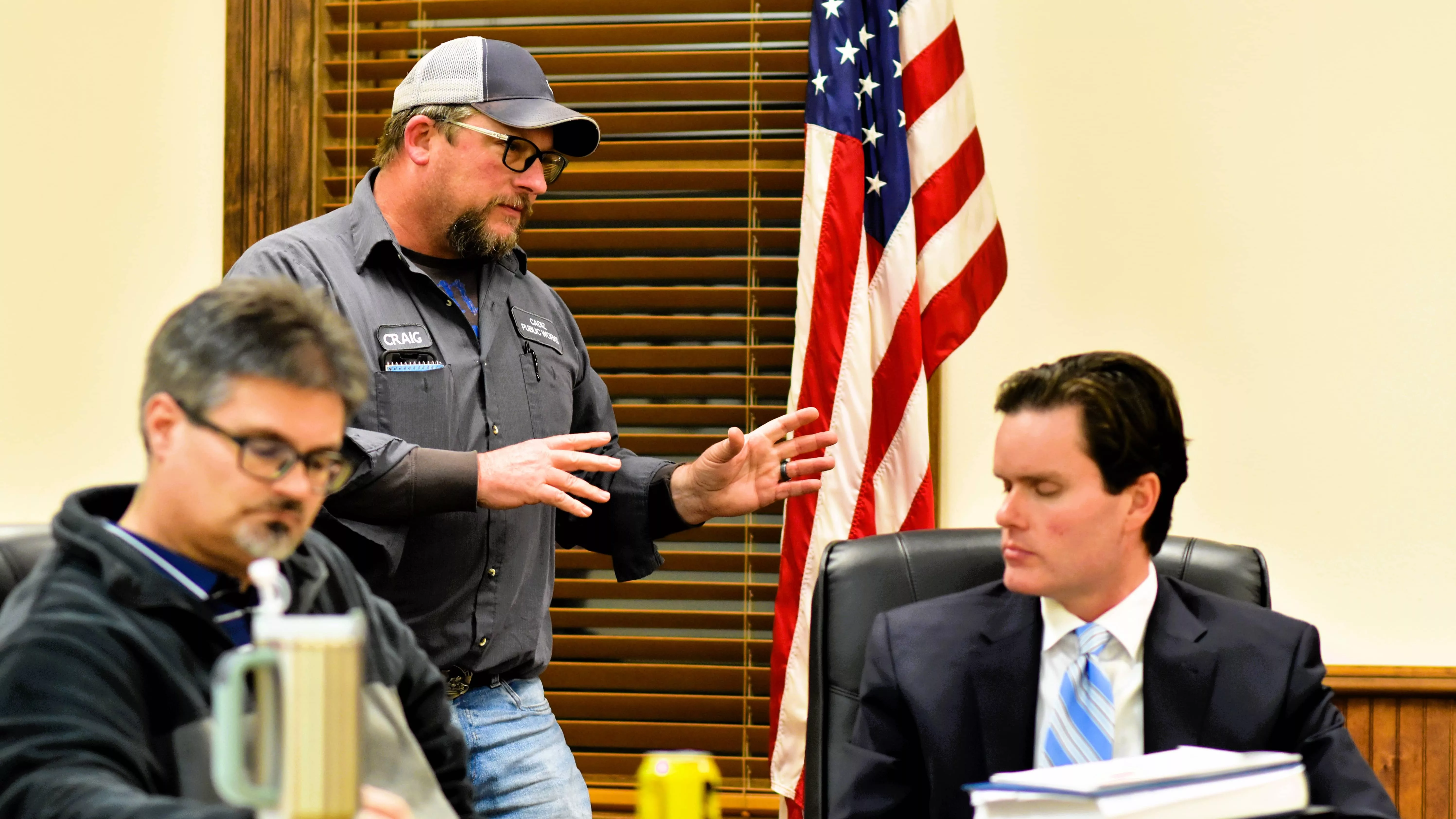
Citing exponentially increasing costs of materials and infrastructure maintenance, the Cadiz City Council Tuesday night unanimously approved a preliminary consensus for the drafting of a resolution — one that would codify a 5% yearly increase of local water rates.
City Attorney Allen Wilson, thankful to be back after a brief personal hiatus, said the council would then need to pass a first and second reading of the resolution, before it could take effect.
Alongside Mayor Todd King, City Clerk Connie Allen noted the council had reviewed the following conditions about water and sewer use inside Cadiz:
— That the average water bill was $56.51 per month;
— That a rate increase does not include an increase of the sanitation rate, since those are governed elsewhere;
— That a 3% increase would raise one’s bill an average of $1.32 per month;
— That a 4% increase would increase one’s bill an average of $1.76 per month;
— And that a 5% increase would increase one’s bill an average of $2.20 per month.
Public Works Director Craig Oakley, in transparency, said he didn’t want the rates raised, and that this was a tough call.
The city finds itself with a high-operating new water treatment facility, but a planned major project parallel to Lafayette Street, and behind the school district, is one of many things magnifying issues.
Oakley said this certainly includes massive jumps in water meter and fire hydrant prices, while a 2-to-5-year and 5-to-10-year master plan to further improve Cadiz requires rate hikes.
Answering a question from Councilwoman Susie Hendricks, Oakley also said this kind of increase would allow Public Works and City of Cadiz officials to attack multiple projects at once, rather than having to “pick and choose” an order of operations.
King apologized, stating it is a “difficult, hard decision to make,” particularly in reference to one demographic.
In 2016, Cadiz City Council enacted an identical measure in preparation for the city’s debt service on a newly-proposed water treatment plant. Prices were changed to a $16.32 minimum monthly bill for the first 2,000 gallons used, an increase from $15.11. Rates then increased 16% over 2017 and 2018.
Rates on 3,000 gallons of consumption, as well as rates outside of the city limits, also rose.
No cap of this proposed annual increase was mentioned in Tuesday’s meeting.





